Hazel Marsh examines the ‘ethnic catch-22’ posed by the government’s recent re-definition of the words ‘Gypsy’ and ‘Traveller’ for planning purposes.
In June 2015, Conservative MP for Kettering, Philip Hollobone, said during a Commons debate:
“The romantic notion of Gypsies wandering through the countryside, entertaining people as they go, is a myth from long ago, because many of these supposed Travellers are self-declared Travellers; they are not from any kind of Gypsy heritage at all”.
The ‘romantic notion’ Hollobone refers to is indeed a myth, but it is a myth projected onto Gypsies by outsiders who, like Hollobone, show little awareness of the history and experiences of the ethnic minorities they make judgements about. As professor of Romani Studies Thomas Acton has observed, racism towards Gypsies and Travellers is frequently rooted in the perception that these groups do not match mythical stereotypes of the ‘true Gypsy’. Such stereotypes, perpetuated in mainstream society through art, literature, music and the media, continue to represent Gypsies and Travellers in the UK as domestic and sensationalised ‘others’, belonging to a bygone pre-industrial age during which they roamed free and at one with nature. Gypsies and Travellers who do not resemble such exotic fantasy images can all too easily be dismissed by ill-informed outsiders like Hollobone as ‘not from any kind of Gypsy heritage at all’.
Romany Gypsies and Irish Travellers are legally recognised as distinct ethnic minorities in the UK, and as such they are entitled to protection under the 2010 Equality Act. Although Hollobone alleges that ‘…they are using, on a self-declared basis, their nomenclature as Travellers to get special privileges in the planning system’, the facts do not suggest that these ethnic minorities are on the receiving end of any ‘special privileges’ at all: existing research shows that Gypsies and Travellers have the lowest life expectancy in the UK (estimated to be 10-20 years lower than the national average), the lowest educational achievements (less than a quarter finish secondary school), and the poorest physical and mental health (depression and suicide are 3-5 times higher than the national average, and rates of chronic limiting illness and disability are 41.9%, compared with a national average of 18.2%). Gypsies and Travellers also suffer the highest rates of maternal death and infant mortality in the UK; mothers from these communities are almost 20 times more likely to have experienced the death of a child during childbirth or in infancy, amounting to 1 in 6, compared to a national average of 0.9% (See http://www.travellermovement.org.uk/wp-content/uploads/2015/01/Gypsy-Traveller-Health-Briefing-2015.pdf.) Yet in spite of such shockingly poor conditions and outcomes, Gypsies and Travellers receive little compassion within mainstream society; a recent YouGov survey found that Roma constitute Europe’s ‘least tolerated’ minority, with 58% of British respondents indicating that they hold a ‘negative impression’ of Gypsies, Roma and Travellers (See https://yougov.co.uk/news/2015/06/05/european-attitudes-minorities/).
It is estimated that some 300,000 Gypsies and Travellers live in England alone, with roughly one third on Gypsy/Traveller sites, and the rest in conventional housing. It is worth pointing out that, contrary to popular belief, Gypsies and Travellers who live on local authority or privately owned sites pay council tax, rent, gas, electricity and other charges. In 1994, the then Conservative government of John Major introduced the Criminal Justice and Public Order Act, thus releasing local authorities from the duty to provide sites for Gypsies and Travellers which had been established in the 1968 Caravan Sites Act. Gypsies and Travellers were encouraged to buy their own land to settle on. However, by 1997, according to the Commission for Racial Equality, 90% of Gypsies and Travellers who owned land were seeing their applications for planning permission refused, compared to the refusal of 20% of all other applications. Nearly twenty years later, it is evident that planning policy continues to discriminate against Gypsies and Travellers; in January 2015, a High Court ruling stated that the then Secretary of State for Communities and Local Government, Eric Pickles, had breached human rights and equality laws by ‘calling in’ applications made by Gypsies and Travellers that would normally have been considered by his planning inspectors. Gypsies and Travellers have certainly been singled out for different treatment, but hardly anything that can be seen as constituting ‘special privileges’.
Two months after Hollobone’s assertion that ‘supposed Travellers’ fake their ethnicity to access ‘special privileges’ in the planning system, the newly re-elected Conservative government introduced a small but significant change in the definition of the words ‘Gypsy’ and ‘Traveller’ for planning policy documents. The previous definition, used to assess the need for Gypsy and Traveller sites, referred to Gypsies and Travellers as:
“Persons of a nomadic habit whatever their race or origin, including such persons who on grounds only of their own or their family’s or dependents’ educational or health needs or old age, have ceased to travel temporarily or permanently.”
In August 2015, the Department for Communities and Local Government removed the words ‘or permanently’ from this definition. As a result, Gypsy and Traveller families who are settled on legal sites risk ‘losing’ their ethnic status in the eyes of planning inspectors, and therefore being evicted as, without fitting the legal definition of ‘Gypsy’ or ‘Traveller’, they no longer qualify to live on the site. Required to travel (although it is not clear for how long and for what purposes) in order to retain their ethnicity for planning purposes, Gypsies and Travellers face harassment and criminalisation when they do travel; there are simply not enough places for them to stop legally.
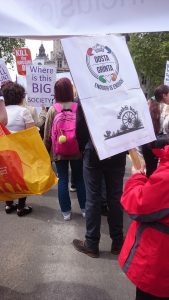
Source: Hazel Marsh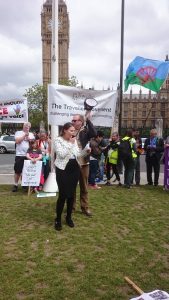
Source: Hazel Marsh
Hollobone’s ‘romantic notion’ of ‘Gypsies wandering through the countryside’ is one such flawed perception based on an outdated stereotype; throughout Europe, the vast majority of Roma are settled, and have been for centuries. Rather than wandering for the sake of wandering, Gypsies and Travellers have historically been forced to adopt nomadic lifestyles in order to escape from persecution, to find seasonal labour, or because state authorities have moved them on. Instead of wandering, Gypsies and Travellers are still wondering, as Scottish Traveller Duncan Williamson expressed it more than forty years ago in his song ‘Closing our Camping Grounds Down’, ‘…where can you move to when you move along?/ For you have got nowhere to go’.
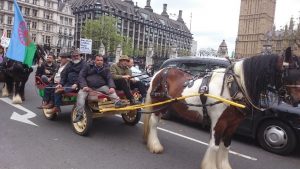
Source: Hazel Marsh
Image Credit: Hazel Marsh
Hazel Marsh is a lecturer in Spanish and Latin American Studies at the University of East Anglia. She is on the executive committee of the Advisory Council for the Education of Romany and other travellers (ACERT), and is an associated member of the European Academic Network on Romani Studies.
The school of Politics, Philosophy, Language and Communication Studies is organising a conference Gypsy, Roma and Traveller Education: Transition and Retention across the Student Lifecycle, which will take place at UEA on 16 June 2017.


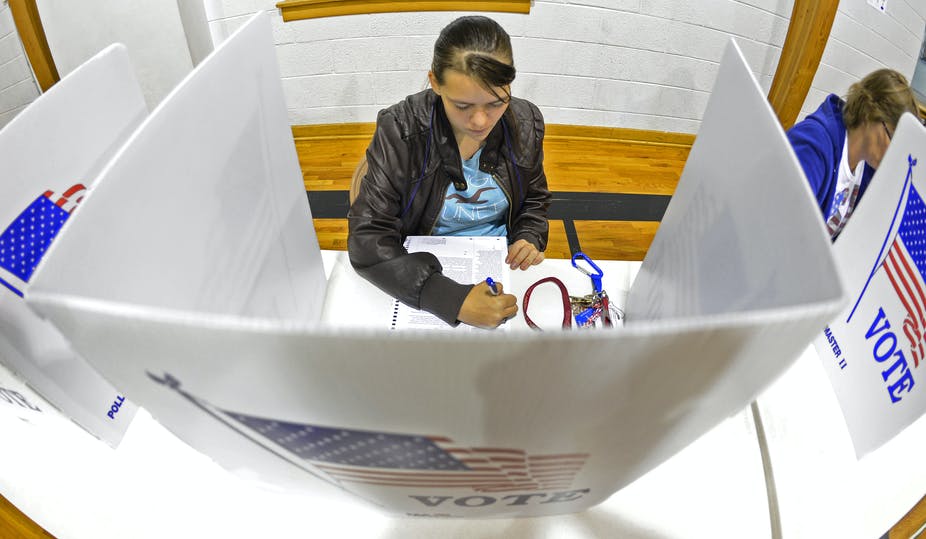
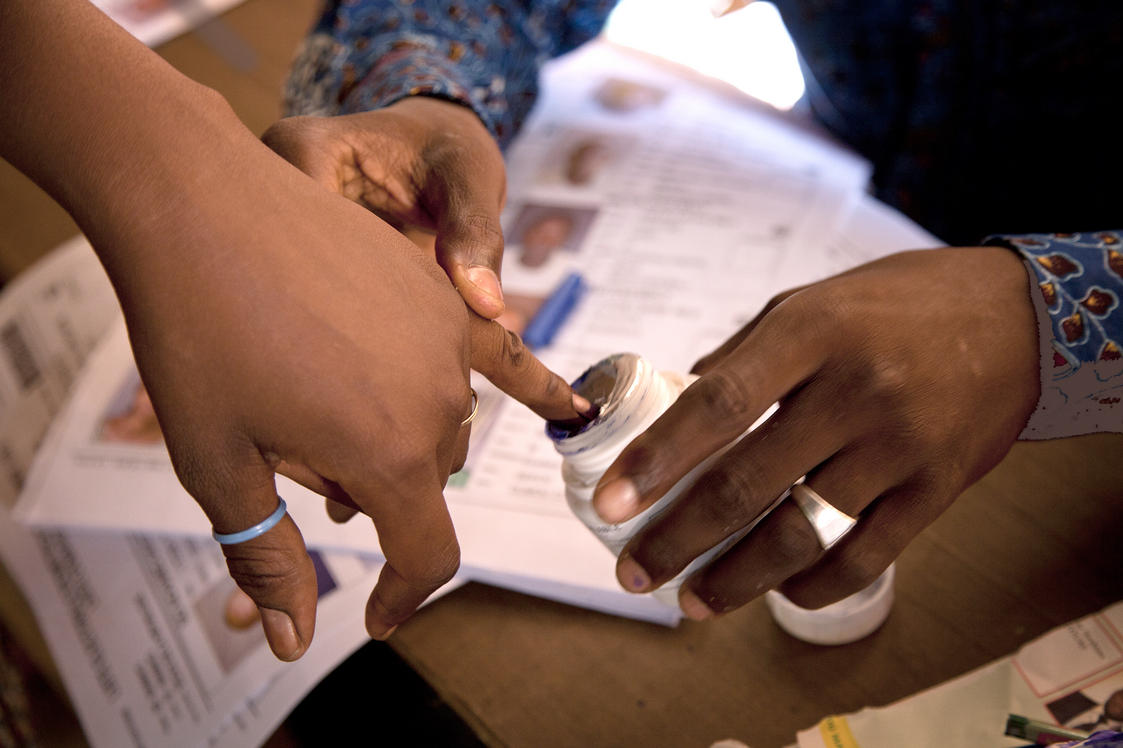


Thank goodness for all the amazing, enthusiastic and empowering work of Gypsy Roma and Traveller groups despite the continued negativity their communities face.